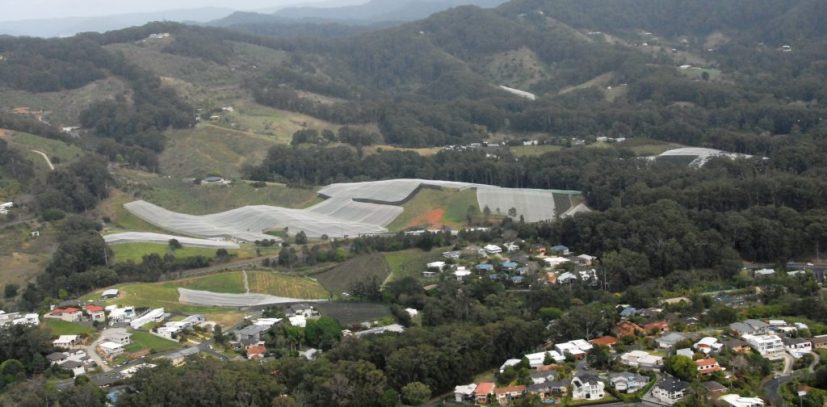
Researchers from the Southern Cross University, in collaboration with the Coffs Harbour City Council, are conducting studies into the potential impacts of Intensive Plant Agriculture on the environment by investigating potential mercury contamination from pesticides in soil, air, water, plants and animals near farming operations.
The project, funded by the Council’s Environmental Levy, will also involve the development of measures to mitigate mercury effects and offer science-based advice to the industry and other stakeholders. Researchers from the Southern Cross University have also undertaken studies looking at the impact that Intensive Plant Agriculture, such as blueberries, is having on our waterways.
The studies have included:
Water Quality on Bucca Creek and the potential impacts of Intensive Plant Agriculture, January 2018
Investigating water quality in Coffs Harbour coastal estuaries and the relationship to adjacent land use Part 1: Sediments (July 2018)
Investigating water quality in Coffs Harbour coastal estuaries and the relationship to adjacent land use Part 2: Water quality (July 2018)
Investigating soil chemistry on intensive horticulture sites and in association with dam sediments
Investigating trace metal transport mechanisms along an intensive horticultural catchment
Improving water quality downstream of blueberry farms
Nutrient transport in headwater streams surrounded by intensive horticulture
This project aims to developestuary management plans for Darkum Creek, Woolgoolga Lake, Willis Creek and Hearnes Lake, as well as a scoping study to help develop updated estuary management plans for Moonee Creek, Coffs Creek and Boambee/Newports Creek.
